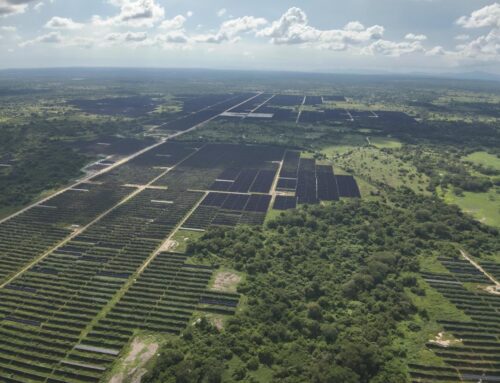Oil Majors Could Soon Face a Litany of Environmental Lawsuits
April 13, 2025
ByFelicity Bradstock– Apr 13, 2025, 2:00 PM CDT
- Chevron was ordered to pay $745 million for damaging Louisiana wetlands, potentially spurring more lawsuits.
- Since 2013, 39 coastal parishes have sued fossil fuel companies, a number expected to rise post-Chevron.
- Cities and states, including Los Angeles and California, may increase litigation against oil companies.

U.S. oil major Chevron has been ordered to pay $745 million over Louisiana wetland damage caused by its energy operations in the region. This is not the first time Big Oil has been forced to pay damages for the negative environmental impact of oil and gas operations, with states and government bodies calling on oil firms to take responsibility for their actions.
A jury ruled in April that Chevron must pay damages to Louisiana to restore its coastal wetlands, including $575 million for land loss compensation, $161 million in response to contamination, and $8 million for abandoned equipment. The lawsuit was filed in 2013 by the rural district of Plaquemines Parish in Louisiana, seeking $2.6 billion in damages. It cited the Louisiana 1980 coastal laws that require all mineral and exploration sites used by energy companies to be “cleared, revegetated, detoxified, and otherwise restored as near as practicable to their original condition upon termination of operations.”
‘;
document.write(write_html);
}
Jurors decided that Texaco, a Chevron-owned company at the time, had violated Louisiana’s state regulations on coast resources because it did not restore wetlands that had been affected by oil activities, such as dredging canals, drilling wells, and dumping billions of gallons of wastewater into the marsh. It was found that Chevron did not obtain the necessary permits at its Breton Sound oil field operations, located southeast of New Orleans, and failed to clean up its mess, which led the environment to be contaminated by the poor storing of wastewater or wastewater being dumped in the marsh.
However, Chevron argues that it “is not the cause of the land loss occurring in Breton Sound.” The company suggests that decades of land degradation cannot be blamed on the oil operations of one company alone. Nevertheless, Louisiana has lost over 2,000 square miles of land, due to rising sea levels and sediment loss, with Plaquemines Parish particularly affected. The state has plans for a 50-year, $50 billion coastal restoration strategy aimed at saving as much land as possible from the rising Gulf of Mexico. Louisiana has also received billions of dollars from a settlement from the 2010 Deepwater Horizon oil spill in the Gulf of Mexico.
The court decision could set the basis for similar legal battles from other parishes and counties. Another 39 lawsuits have been launched against fossil fuels companies by coastal parishes since 2013. This action is not only restricted to U.S. coastal regions, with several towns, cities, and states blaming oil companies for environmental degradation. For example, in Los Angeles, residents affected by the recent wildfires are calling for oil companies to be made to pay damages for the role they played in the current climate disaster.
Scientists are currently working to understand how much of an impact the climate crisis had on the L.A. wildfires. In January, UCLA climate scientists determined that it was likely responsible for a quarter of the dryness that fuelled the rapid spread of the fires. In addition, there is growing evidence that Big Oil was aware of the damage being caused by fossil fuel operations despite spending decades denying global heating and encouraging consumers to support projects. This has led cities and states, including California, to file litigation aimed at holding oil companies accountable for the alleged disinformation campaign and forcing them to pay damages.
Meanwhile, in 2024, the Environmental Protection Agency (EPA) and Justice Department ordered Holly Energy Partners-Operating and Osage Pipe Line Company to pay $7.4 million in civil penalties under the Clean Water Act, as well as implement corrective measures to settle claims associated with the Osage pipeline rupture and crude oil spill on tribal land owned by members of the Sac and Fox Nation in Oklahoma. The companies were also ordered to take additional steps to prepare for and prevent future spills.
David Uhlmann from the EPA’s Office of Enforcement and Compliance Assurance stated, “The pipeline spill in this case dumped nearly 300,000 gallons of crude oil, contaminating Skull Creek and severely hampering water quality and the aquatic environment in the creek… EPA and its federal partners are requiring the oil companies who caused the spill to restore Skull Creek, operate safely, and take steps to prevent future spills.”
Meanwhile, Assistant Attorney General Todd Kim of the Justice Department’s Environment and Natural Resources Division said, “Oil companies have a responsibility to prevent harmful oil spills, and today’s settlement demonstrates that those who violate this duty will be held accountable under the law.”
The Trump administration has been known to side with oil and gas companies in the past, but the Plaquemines Parish court outcome gives hope to communities going up against big oil over environmental damages. However, it will be much more difficult to win a lawsuit over the role that oil companies had in exacerbating the current climate crisis. Nevertheless, oil and gas companies are gradually being held more accountable for their actions, which may help encourage them to follow regulations and environmental standards more closely in the future.
By Felicity Bradstock for Oilprice.com
More Top Reads From Oilprice.com
Search
RECENT PRESS RELEASES
Related Post



